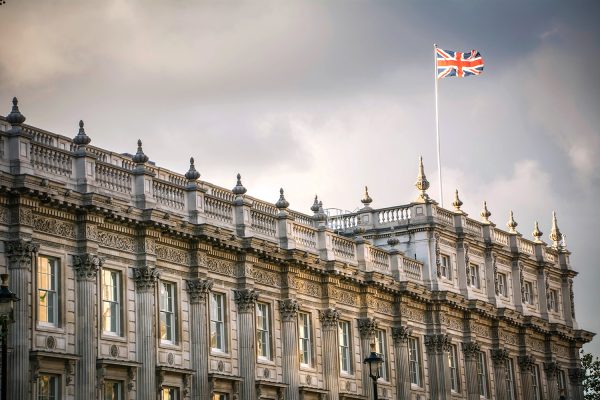
Two months ago, I argued Britain was once again the sick man of Europe. It had the second-highest per capita COVID death rate among major countries. Economic output had fallen 20 percent from the year before.
The crisis wasn’t lost on policymakers. The dual shock of coronavirus and Brexit — Britain formally left in 2019 but still applies EU rules and regulations this year — has led to something of a quiet revolution in Whitehall: the potential rebirth of the interventionist state.
There is still much wrong with how the British government has handled both events, the poster child for COVID being the decimation of the British aviation and travel industry as well as the arts. Not since the closing of the coal mines has an entire industry shrunk so dramatically.
Yet the seeds of a new statism have been sown — by a Conservative government.
Furloughs
In March, Rishi Sunak, the chancellor of the exchequer, announced a furlough scheme that paid 80 percent of the wages of over nine million workers. The aim was to prevent Depression-scale unemployment, and it did. 90 percent of those furloughed remain officially in work.
The program is now being wound down and replaced by the Job Support Scheme, which is similar to Germany’s famed Kurzarbeit, whereby the state tops up the pay of private-sector workers who either take a cut in hours or salary as opposed to being laid off completely.
The furlough scheme cost £50 billion, equivalent to the annual defense budget. The Job Support Scheme is projected to be cheaper.
Given its success, it will likely create a precedent for some form of post-pandemic Job Support Scheme to supplement unemployment insurance, which could cost the Treasury less, as it will keep people in work.
Rail
Another area in which the state has taken a more active role is rail.
The dismantling of British Rail into various “franchises” which private companies could be bid for was the flagship privatization of the 1990s Conservative government under John Major.
The pandemic has made this business model unsustainable. Train journeys fell to 35 million this summer, down from 400 million the year before. The government has taken over three franchises and is paying others a fixed sum to continue operations pending a wider review into the future of rail. It is likely that, in the long term, British rail will have more state involvement, perhaps in the form of state-owned or -run concessions.
Industrial policy
There were hints of a new interventionism before the pandemic with suggestions that key industries could receive subsidies or other forms of support to pull through Britain’s exit from the European Union and emerge more competitive at the other end. These would include nuclear, the car industry and “Industry 4.0” life and health sciences.
COVID, and the possibility that Britain will leave the EU without a trade deal in two months, has provided a new sense of urgency. Britain could once again adopt a formal industrial strategy.
Housing
For the first time since Margaret Thatcher gave renters a “right to buy”, and created a nation of homeowners at the cost of depleting the social housing stock, state and social housing is being built.
Local governments have been buying up houses and whole apartment blocks, which were planned and built pre-COVID and are now vacant. Some have set up building and development teams to coordinate the construction of more homes after the government removed caps on borrowing. There is even talk of creating something akin to the Singapore Housing Development Board and using central government money to address the affordable housing shortage.
This is not an un-Conservative policy. I pointed out some years ago that when Harold Macmillan, the later prime minister, was minister of housing, the British government built 300,000 homes per year.
Political gain
All this points to a more interventionist British state, regardless of which party controls the government.
For the Conservatives, there is potential political gain. They won the last election through the former Labour heartlands in the deindustrializing north of England, where small-government, market-oriented Thatcherism is unpopular.
If the Conservatives bungle Brexit and the pandemic, and Labour returns to power, it is almost certain they would accelerate the march to statism.
